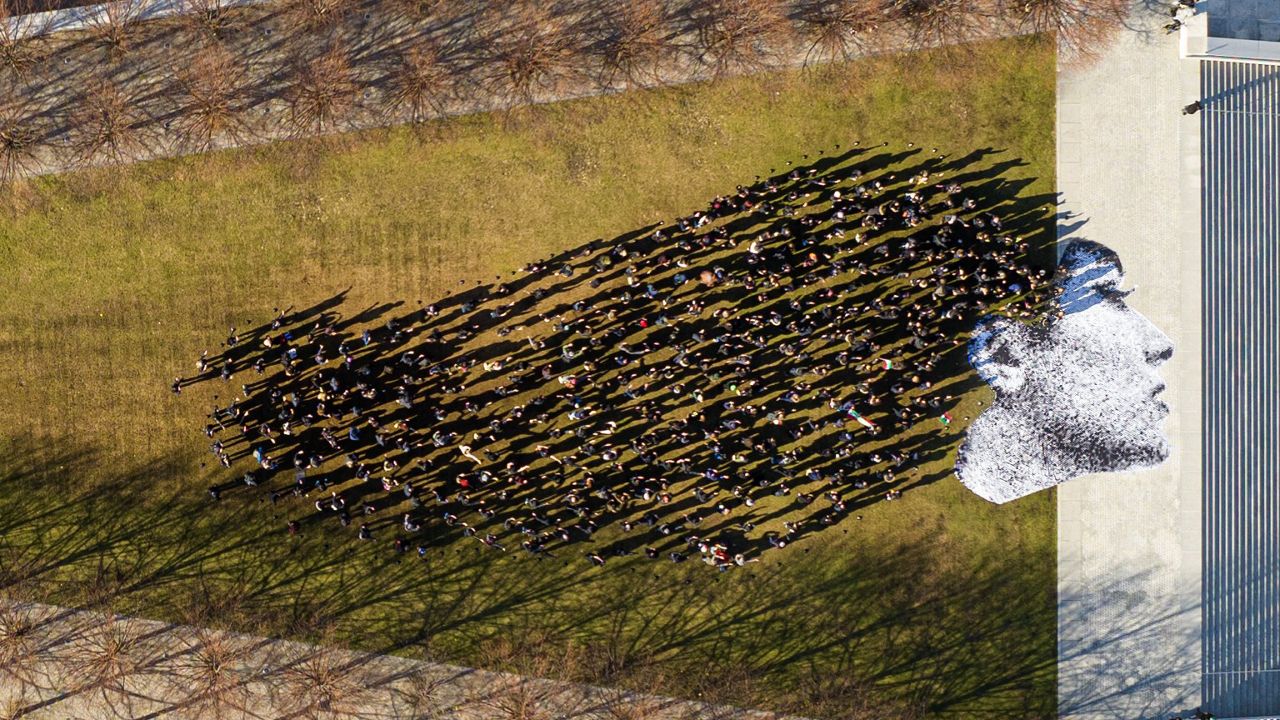Roudabeh Riggs has lived outside of her home country of Iran for more than a decade, but the trauma from years of living under the rule of the “morality police” still haunts her.
She said she’s been arrested multiple times by the enforcement unit, which is responsible for maintaining the country’s strict Islamic dress code for women, for things like using bright nail polish and for wearing her hijab too loosely.
Once, as a student at Sapienza University in Rome, she suffered a panic attack when she thought she saw a member of the morality police on a moped ride by her, she said. She suddenly realized she wasn’t wearing her hijab and thought she may get arrested.
“I hugged the wall because I just wanted to go and hide somewhere,” Riggs, who lives in the Bronx, said. “And it took me two to three minutes to realize that, ‘No, I'm not in Iran, I am outside and this is OK. Nobody's going to arrest me.”
The death of 22-year-old Mahsa Amini in September following her arrest by the morality police for an alleged headscarf violation sparked worldwide outrage, including in the United States. Anti-government protests in Iran ensued amid more reports of violence by state hands.
At least 400 people have been killed since the protests began, including 50 minors, according to groups like Human Rights Activists in Iran. At least 14,000 people have been arrested, according to the United Nations.
The upheaval has garnered international attention, including calls to remove the Islamic Republic of Iran from the United Nations’s Commission on the Status of Women. The U.N. will vote on the issue on Wednesday.
For Iranians in diaspora, like Riggs, New York City plays a central role in raising the voices of those within Iran’s borders who are demanding change.
Riggs, 38, co-founded the group Women, Life, Freedom, named for the women-led uprising’s defining chant in Iran. The New York City group, composed of about 25 volunteer activists, has been organizing weekly protests across the city since the activists connected with each other at initial protests that took place following news of Amini’s death.
The group is a mix of people born in the U.S. and people who immigrated later in life, like Riggs. Their day jobs include working as a dentist, interior designer and entrepreneur.
“We are all motivated to do this because really, enough is enough,” Riggs, who has lived in NYC for five years, said. “And it is kind of survivor’s guilt because we live here while [the regime is] killing innocent women and children.”
Activists consider their work in New York City an important part of keeping worldwide attention on the issue.
“I keep telling myself, ‘OK, channel the sadness and disbelief and horror and guilt and all your emotions, and your anger, into doing something positive and making a change,” said Betty Emamian, who is also Iranian and has been joining protests in the city since the upheaval abroad began.
Organizers in November, from New York and around the world, unveiled the “Eyes on Iran” public art installation that faces the U.N. building at FDR Four Freedoms Park on Roosevelt Island.
“It was very significant to hold it in New York City, and it was a way for all of us to convene and join forces,” said Nazanin Afshin-Jam MacKay, a human rights activist and organizer with a coalition of Iranian women who helped put the installation together.
The unveiling on Nov. 28 featured speakers like former U.S. Secretary of State Hillary Clinton and human rights lawyer Gissou Nia, as well as a performance by Jon Batiste. The expansive exhibition features eye motifs of various sizes throughout the park, meant to symbolize the world’s eyes on Iran.
“It's a cultural metropolitan hub,” Sheida Soleimani, one of the artists featured at the exhibition, said of the importance of the site for the art activation, which will be on display until Jan. 1. “I think people always look to New York as being the space that has the ability to project these voices.”
The Commission for the Status of Women reports on the status of women’s equality and provides recommendations to countries on how they can improve the rights of women.
Advocates are hopeful that the commission will remove Iran when it comes up for a vote Wednesday.
Riggs said she was not active on social media prior to the death of Amini, but now posts nearly every day about the issue.
Even though she never considered herself an activist prior to the death of Amini, she said the activist spirit comes with the territory.
“Well, being an Iranian woman, you're kind of an activist since the day you were born,” Riggs said.



